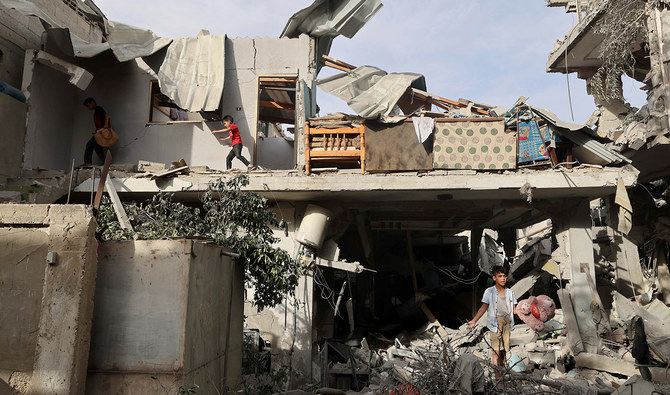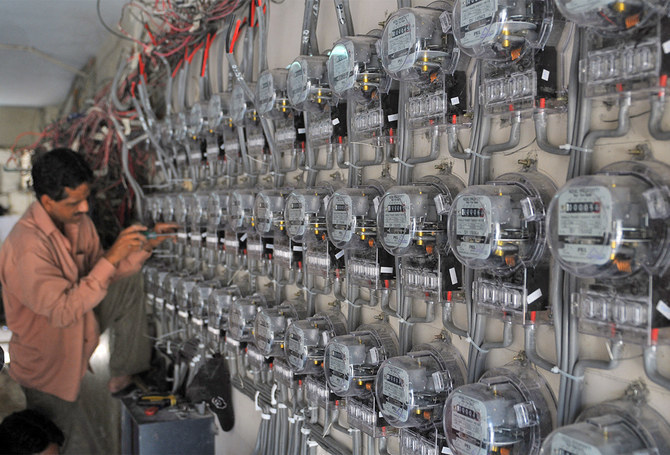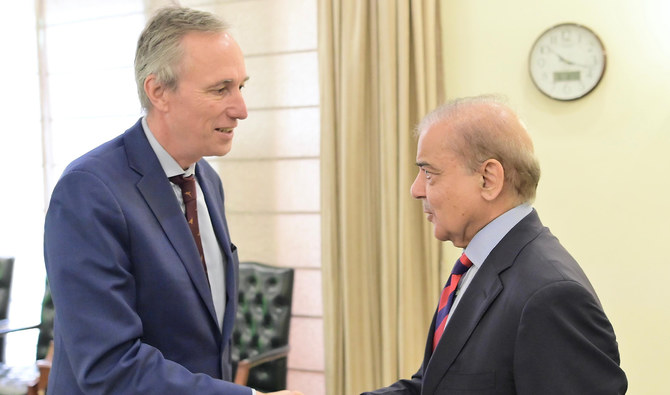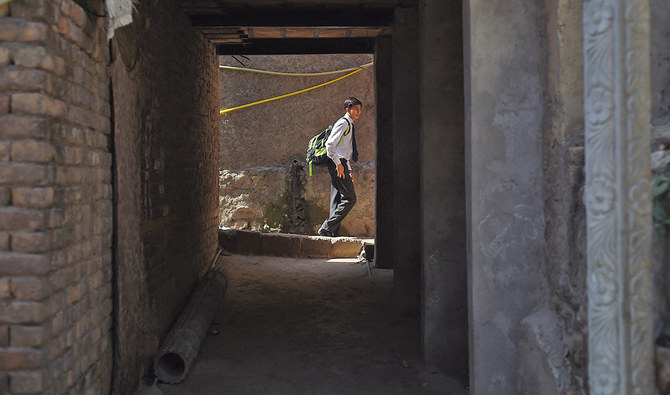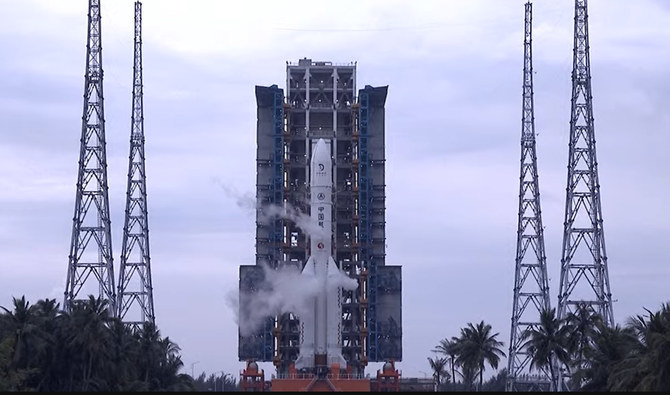CAIRO: A high-level Egyptian delegation was in Israel for talks on Friday amid a new diplomatic push for a truce in the Gaza war and the release of Israeli hostages held by Hamas.
The visit followed a trip to Cairo on Thursday by Israeli army chief Lt. Gen. Herzi Halevi and Shin Bet domestic intelligence service head Ronen Bar.
Officials in Israel described the latest moves as “an attempt by Egypt to restart the talks” after previous mediation efforts led by Qatar broke down. They told the Egyptian delegation that Israel was ready to give hostage negotiations “one last chance” to reach a deal before moving forward with an invasion of the southern city of Rafah.
“Israel told Egypt that it is serious about preparations for the operation in Rafah and that it will not let Hamas drag its feet,” one official said.
FASTFACT
34,356
Palestinians have been killed in the Gaza Strip during more than six months of war between Israel and Hamas.
Egypt is concerned about a potential influx of Palestinian refugees from Gaza if the war continues with the long-threatened Israeli offensive into Rafah, and has taken an increasingly active role in the negotiations.
“The Egyptians are really picking up the mantle on this. Egypt wants to see progress, not least because it’s worried about a prospective Rafah operation,” the official said.
Israel was increasingly looking past Qatar as a main broker, according to the official, after it failed to respond to Israeli demands to expel Hamas leaders from its territory or curb their finances.
“Qatar is still involved but in a lesser capacity,” the official said. “It’s clear to everyone they failed to deliver, even when it came to expelling Hamas or even shutting down their bank accounts.”
Hamas officials said they still considered Qatar a key mediator, alongside Egypt.
White House national security adviser Jake Sullivan said he saw fresh momentum in the talks.
“I believe that there is a renewed effort … to try to find a way forward,” he said “Do I think that there is … new life in these hostage talks? I believe there is.”
No new proposals
An official, who spoke on condition of anonymity, said Israel had no new proposals to make, although it was willing to consider a limited truce in which 33 hostages would be released by Hamas, instead of the 40 previously under discussion.
“There are no current hostage talks between Israel and Hamas, nor is there a new Israeli offer in that regard,” the official said. “What there is, is an attempt by Egypt to restart the talks with an Egyptian proposal that would entail the release of 33 hostages — women, elderly and infirm.”
According to Israeli media reports, Israeli intelligence officials believe there are 33 female, elderly and sick hostages left alive in Gaza, out of a total of 133 still being held by Hamas and other Palestinian militant groups.
There was no decision on how long any truce would last but if such an exchange were agreed, the pause in fighting would be “definitely less than six weeks,” the official said.
The visit by the Egyptian delegation came a day after the United States and 17 other countries appealed to Hamas to release all of its hostages as a pathway to end the crisis in Gaza. Hamas vowed not to relent to international pressure.
Hamas said it was “open to any ideas or proposals that take into account the needs and rights of our people.” However it stuck to central demands Israel has rejected, and said it criticized the statement for not calling for a permanent ceasefire and the withdrawal of Israeli forces from Gaza.



